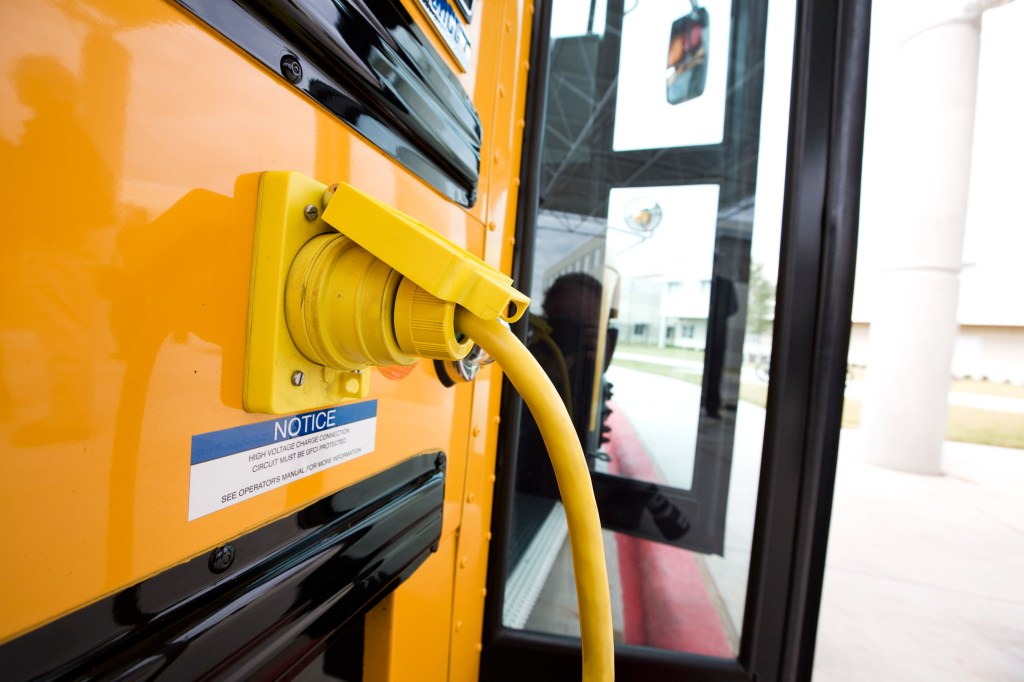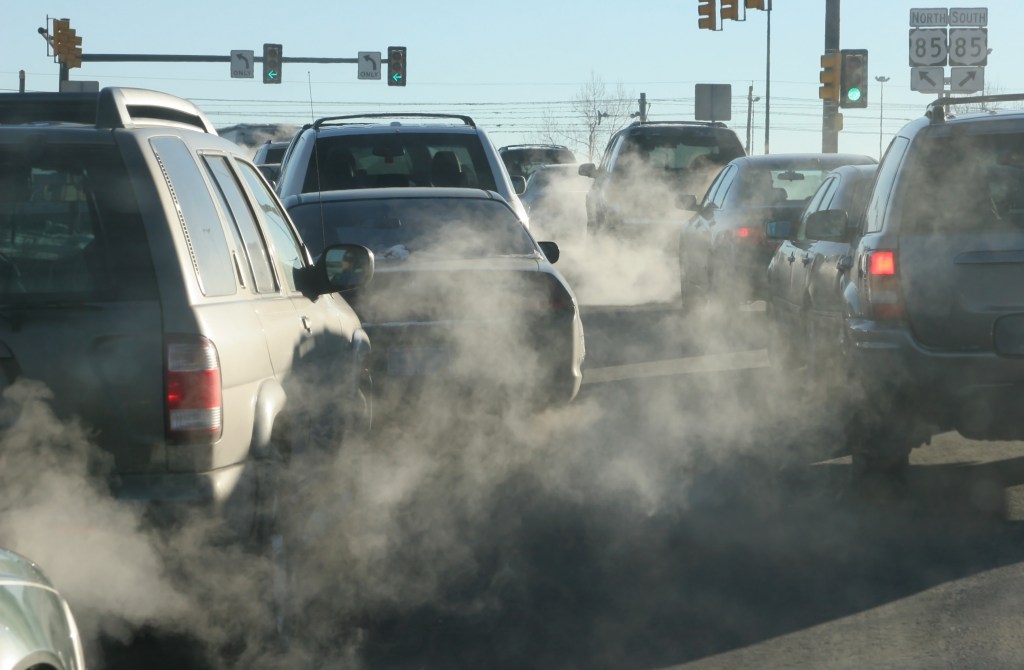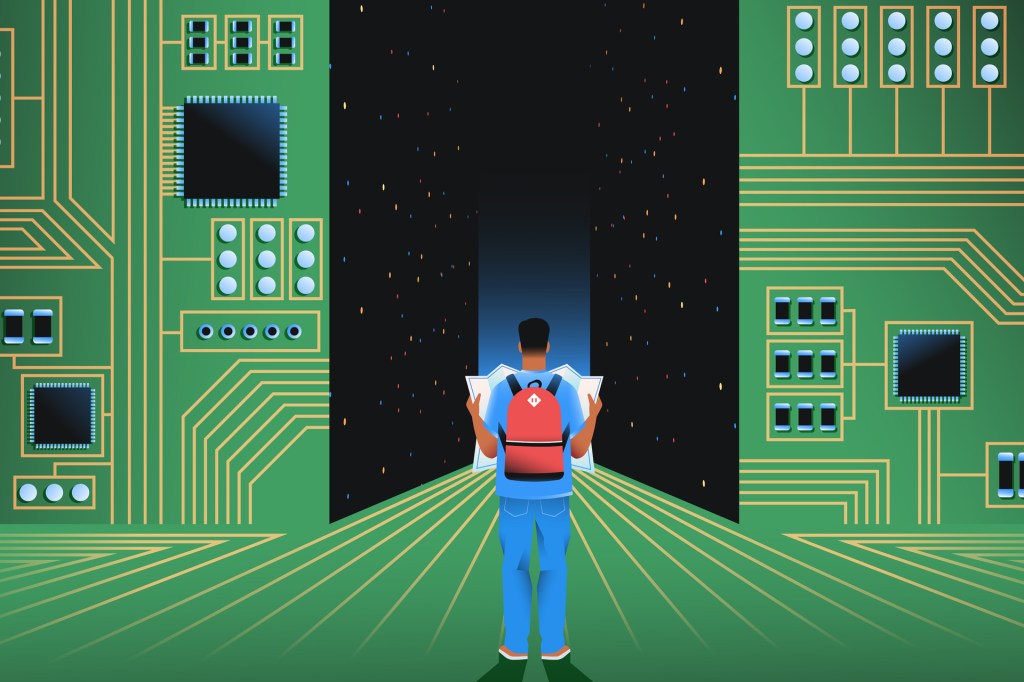Charging Ahead

Do you ride a school bus? If not, you might know someone who does. In the United States, more than 25 million students take one every day, according to the American School Bus Council. That’s more than 480,000 buses on the road. Most of them run on diesel fuel.
Like gasoline, diesel is a product made from a fossil fuel
fossil fuel
 MILEHIGHTRAVERLER/GETTY IMAGES
a fuel formed in the earth from plant or animal remains
(noun)
Most cars run on gasoline, which is made from fossil fuels.
. It is bad for the environment. Diesel emissions
emissions
MILEHIGHTRAVERLER/GETTY IMAGES
a fuel formed in the earth from plant or animal remains
(noun)
Most cars run on gasoline, which is made from fossil fuels.
. It is bad for the environment. Diesel emissions
emissions
 BOULTON MARK/GETTY IMAGES
substances sent into the air (as by a smokestack or car engine)
(noun)
We could always tell Mom's car by the white cloud of emissions from the tailpipe.
pollute the air. They may also cause or worsen health problems, such as asthma.
BOULTON MARK/GETTY IMAGES
substances sent into the air (as by a smokestack or car engine)
(noun)
We could always tell Mom's car by the white cloud of emissions from the tailpipe.
pollute the air. They may also cause or worsen health problems, such as asthma.
“Whether kids are on the bus or just at school near idling buses, they are exposed to diesel fumes,” Matthew Casale told TIME for Kids. He is the 21st Century Transportation campaign director for the United States Public Interest Research Group. The group hopes to inspire greener transportation systems by encouraging the switch to electric school buses.
Electric buses run on batteries. They are plugged into charging stations and can run for 150 miles on a single charge. The best news? They are emissions-free.
“Our ambitious goal is to get 100% of school buses electric by 2030,” Casale says.
New Wheels
School districts in California, Massachusetts, and Minnesota have already begun test runs of electric school buses.
In New York City, council member Rafael Espinal has secured $1.5 million for a “handful” of electric buses for the 2019–2020 school year.
“I thought it made sense to look at how we can electrify our school bus system and improve air quality for our students, but also be a contributor to the fight against climate change,” Espinal says.
Switching will not be cheap. A typical diesel bus can be purchased for about $400,000, while an electric bus costs around $750,000. Many school districts can’t afford the extra expense.
But electric school buses may end up costing less over time. According to the U.S. Department of Energy, it costs less to travel in an electric vehicle than in one that runs on diesel.
To Casale, the choice is clear. Diesel is unacceptable, he says, “when we know how bad it is for kids and we know there are better options out there.”













